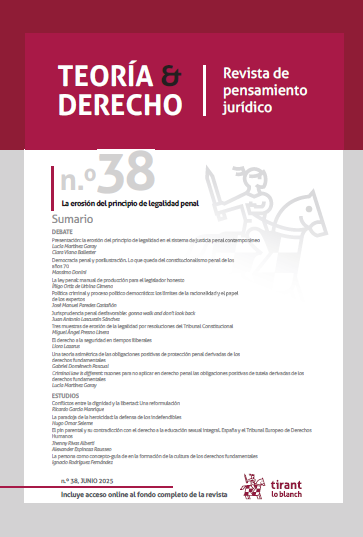The paradox of heroism: the defense of those who are indefensible
DOI:
https://doi.org/10.36151/TD.2025.126Keywords:
Standard Conception of Legal Ethics, Supererogatory Action, Principle of Non-Responsibility, Client Selection, Social Criticism of LawyersAbstract
This paper identifies what is termed the Paradox of Heroism. The decision of a lawyer to represent a client who has committed heinous crimes typically provokes significant social criticism. Nevertheless, some of these lawyers perceive themselves —and are perceived by their peers— as heroes whose conduct is worthy of praise. The paradox lies in the fact that the more they are socially criticized as villains, the more they view themselves as heroes and the more they are commended by other legal professionals. Drawing on the Principle of Non-Responsibility, a cornerstone of the standard conception of legal ethics, and the concept of supererogatory conduct, the paper demonstrates why, under certain circumstances, representing individuals guilty of abhorrent crimes can indeed be praiseworthy and heroic. The paper’s hypothesis is that the paradox arises because one of these circumstances includes the social perception of such professional conduct as immoral or improper.
Downloads
Downloads
Published
Issue
Section
License
Copyright (c) 2025 Teoría & Derecho. Revista de pensamiento jurídico

This work is licensed under a Creative Commons Attribution-NonCommercial-NoDerivatives 4.0 International License.





















